4 in 10 workers say they don’t know who to go to for financial and retirement planning advice.*
Many turn to non-professional sources, like family and friends (35%), or go online to do their own research (35%). Roughly a third of workers currently work with a financial professional, though 4 in 10 workers who don’t work with an advisor plan to work with one in the future. Workers generally seek advisors with expertise in their goals and experience with households of similar assets.*
Survey results indicate that 40% of employees are seeking financial and retirement planning advice, but are unsure where to get it. This is a common issue that can be corrected when employees have the time to sit down with a financial professional and learn about the options available to them when they contribute to an employer retirement plan. Employers issue Universal Availability notices to employees on an annual basis per IRS regulations to keep employees informed about the deferred compensation plan offered. However, there is often little education offered on how each of the investment choices in the plan can be utilized to help employees build a retirement income that they deserve.
An example of a common misconception that employees have is that their employer plan like a 403(b), 457(b), or a 401(k), known collectively as a defined contribution plan, is the investment itself. 403(b)/457(b)/401(k) plans are generally funded using mutual funds and or annuities via a payroll deduction. The “plan” provides the framework for employees to contribute pre-tax, and to offer products to allocate the money to. The annuities and mutual funds are the products that the employees choose for their money to go into.
Choosing an investment that fits an employee’s risk tolerance and that matches their goals for retirement is the education employees are seeking. Too often when employees lack this education, there is a risk that they just won’t participate in their employer’s retirement plan.
That’s why access to a financial professional is so important.
The logistics of ensuring that employees have access to a financial professional can sometimes be challenging. Some easy solutions include offering employees a benefit fair type of event that brings together all the vendors connected to the benefits offered to employees. Employees have the opportunity to meet with the providers of their benefits, ask questions and arrange for one-on-one appointments to discuss their individual needs. In place of a benefit fair, some employers utilize a new employee orientation that invites benefit providers to be on hand to answer questions and provide resources to educate new employees on their benefits.
Maybe the easiest way to provide the resources and education that employees seek is to build working relationships with the financial professionals that are available to meet with and assist employees with their retirement planning. Some districts have established solicitation rules and a process for agents to follow when meeting with employees, others leave it to each of the schools in the district to arrange for agents to meet with employees.
Whatever the process, districts should seek out those agents that are committed to being available to employees on a regular basis and who are able to educate larger groups of employees when needed.
Educating educators about their retirement options is essential for employees to have a retirement that they deserve. Work with your agents to develop collaborative efforts to educate and communicate to employees the importance of planning for retirement. Or, contact me and I’ll find you agents ready and able to assist your employees.
* https://www.ebri.org/docs/default-source/rcs/2021-rcs/2021-rcs-summary-report.pdf
TC125965(0322)1


